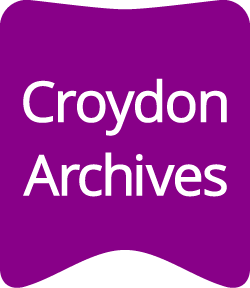Showing 723 results
Authority record- CB202
- Corporate body
- n.d.
- CB023
- Corporate body
- 1877 - 1992
Tamworth Road Temporary School for girls and infants opened on 8 January 1877. Boys were transferred to Church Road Boys School when old enough. On 1 January 1880 Church Road Boys School closed and staff and pupils were transferred to new buildings in Mitcham Road. Tamworth Road Temporary School probably closed at the same time when a similar move was made. The school was thereafter exclusively for infants and was known as Mitcham Road (until 1921), Rectory Manor, and then Kingsley from 1 June 1931, following a move to new premises.
- F011
- Family
- c. 1879 - 1941
- CB028
- Corporate body
- 1937 - 1993
Founded 11 January 1937. From 1937 to 1959, the school was for infants as well as juniors. A separate but adjacent infant school was opened on 1 September 1959.
- CB029
- Corporate body
- 1937 - 1959
Keston Primary School was opened on 11 January 1937 for children aged 5 to 11.
In 1959 the school was reorganised with separate Infant and Junior Departments.
On 1 September 2003 the Infant and Junior Schools were combined once more.
Kensington Avenue Junior School
- CB036
- Corporate body
- 1932 - 1998
Opened 4 April 1932. Existed as a combined infant and junior school until April 1957, when a separate infant school was opened on the same site. The school federated, as Kensington Avenue Primary School, in 2005.
Kensington Avenue Infant School
- CB041
- Corporate body
- 1955 - 1997
The School was a combined Infant and Junior School which opened on 4 April 1932. In April 1957 a separate Infant School was opened on the same site. The school federated, as Kensington Avenue Primary School, in 2005.
Pupils were evacuated to Hove on 4 Sept 1939, attending East Hove Junior School, Ellen Avenue. The school re-opened full-time in Croydon on 25 May 1940. On 17 June 1940 a party was evacuated to Holsworthy (Devon) and by 12 August the Hove party had been moved to the greater safety of Holmsbury St Mary (Surrey).
- P115
- Person
- 1898 - 1976
- P063
- Person
- n.d.
- CB257
- Corporate body
- Unknown
- P012
- Person
- 1530 - 1604
John Whitgift was Archbishop of Canterbury from 1583 until his death in 1604.
- P065
- Person
- n.d.
- P037
- Person
- 1918 - 1941
John Kenneth Hill was born in 1918 and lived in Craigan Avenue, Addiscombe, until the Hill family moved to Shirley Road in 1934. Around the age of 4 or 5, he developed polio, though within a few years was able to walk without the use of an iron splint. Both John and his brother Colin Hill attended Hadley House preparatory school and then went on to Whitgift. In 1934 John left school and became a junior Insurance Clerk for the North British and Mercantile Insurance Company.
John soon applied to join the Royal Air Force Volunteer Reserve (RAFVR), but due to his impaired health from the polio was refused on his first application, but was then accepted on his second attempt in 1938.
Pilot Officer John Kenneth Hill was killed on 17 April 1941 when the bomber he was piloting came down in County Wicklow, Ireland, on return from a raid on Berlin. All four crew on board died in the crash.
- P022
- Person
- 1903 - 1945
Ledgers of John Hook, Undertaker and Monumental Mason, of 28 Selhurst Road, South Norwood SE25.
- P043
- Person
- 1851
John Blake lived at 65, Park Lane, Croydon. He appears on the 1851 census as an auctioneer, aged 69 alongside three servants named as Rebecca Standing aged 40 years, Sarah Standing aged 19years and Amelia Skinner aged 38years. His birthplace is given as Surrey, Croydon. He died at his residence in Park Lane on the 23rd February 1852 aged 72 years.
A tribute was published in The Surrey Standard of 28 February 1852 and was subsequently printed for private circulation. The Local Studies Library holds a copy. The following excerts from that publication sum up the character of the man and read Not only was he a great labourer in the business of life, but even his recreations would have been labours to many; for with the exception of the hours spent in social discourse with his numerous friends, whom he delighted to make happy around him, the pauses in his professional labours were chiefly devoted to important works for the benefit of others. His guardianship of the poor, the management of public charities, the duties of trustee for families not related to him, and the dispensation, with discrimination mixed with warm hearted benevolence, of his numerous private charities, were his mode of unbending or refreshing his mind after the labours of business
He had a strong natural common sense and sound judgement ...a natural simplicity of character...a straightforward plainess of manner and intention , and a candour and openness of heart, which enabled every one who knew him to see, as it were, beneath the surface of his character , and to percieve and feel the integrity and the benevolence that formed its basis. These qualities it was that gained him the warm esteem, and the most implicit confidence of all who knew him
It seems that in the absence of wife or children a large portion of Mr Blakes extensive possessions will devolve, we presume, on his nephew, and partner in business, whose amiable disposition, good business habits, and well known integrity, render him a worthy object to recieve the falling mantle of his lamented relative, and a fit successor to follow in his good uncles steps of charity and utility.
- P105
- Person
- 1932 - 2011
